A Quantum Application Scientist reformulates business and scientific problems into ones compatible with quantum computing. They help different sectors like pharma, finance, logistics, and materials science understand the uses of quantum computing.
According to the latest data from 2025, these professionals have salaries ranging from $85,000 to $165,000 based on geography and experience. Quantum Applications Scientists must understand both quantum algorithms and a specific field to determine where a quantum advantage might be gained.
There are an estimated 2,500 Quantum Application Scientists in the world, mostly housed in research institutions and technology companies. They are part of a team with software engineers and domain specialists to create quantum solutions.

What is the average base salary?
Min. Qualifications
What You Need to Know
What education is required to become a Quantum Application Scientist?
A PhD in Physics, Computer Science, or Mathematics is typically required. Experience in quantum algorithms and practical business applications in specific industry domains are good to have.
How much does a Quantum Application Scientist earn?
Quantum Application Scientists earn $85,000-165,000 a year globally. American positions averaging $132,000, European roles around €112,000, while remote positions at $127,000 annually.
What industries hire Quantum Application Scientists?
Pharmaceutical companies, financial institutions, logistics firms and aerospace companies hire them. Hiring is for drug discovery, portfolio optimization, route planning, and materials research applications.
What does a Quantum Application Scientist do?
A Quantum Application Scientist identifies real-world problems suitable for quantum solutions & transforms them into quantum algorithms for industries: finance, pharmaceuticals, and logistics.
More Quantum Job Salaries
Cryogenic Engineer (Quantum Systems)
Builds ultra-low temperature systems for quantum hardware, earning $90,000-$185,000+.

Quantum Control Engineer
Designs and tunes quantum hardware control systems, earning $95,000-$190,000+.

Quantum DevOps Engineer
Manages quantum infrastructure and pipelines, earning $90,000-$180,000+.

Quantum Solutions Architect
Designs enterprise-ready quantum systems, earning $100,000-$210,000+.

Quantum Product Manager
Leads quantum product vision and delivery, earning $100,000-$220,000+.

Quantum Technical Writer
Creates documentation, and technical content for quantum computing products and research.


.svg)
.svg)

